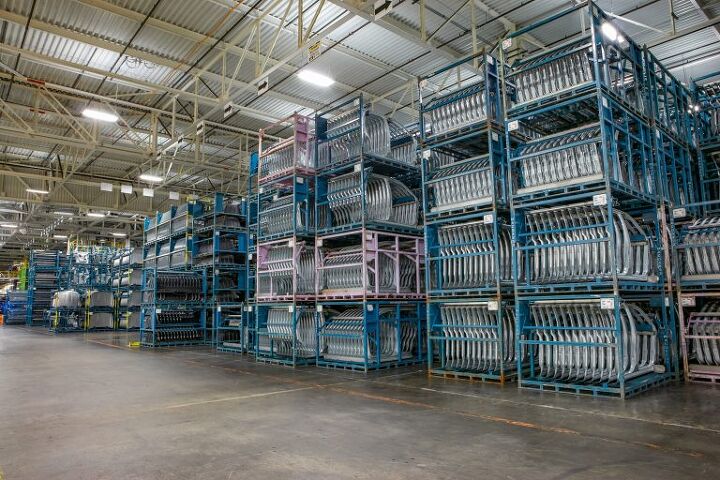Ford, GM Earnings Reports Will Tell the Chip Shortage Tale

Ford and General Motors are both slated to show their third-quarter earnings reports on Thursday.
Reports suggest that despite the negative impacts of the global semiconductor chip shortage, there may be positives for the companies, as well.
Both companies have, of course, had to halt production at times to deal with the chip shortage. And supplies, materials, and shipping have higher costs now, which could also prove problematic for profit margins.
On the other hand, strong demand for profitable trucks and SUVs has been more than helpful.
According to Automotive News, this means investors will be wondering how both companies can navigate a turbulent supply chain.
The annual sales rate for new cars and trucks dropped to 12 million in September, thanks to the chip shortage, and forecasters are cutting their forecasts for 2022 thanks to the shortage and general supply-chain disruption. Much depends on if the chip shortage ends in 2022 or 2023.
Wells Fargo is expecting the two companies will tell investors to focus more on the lower end of their forecasts for the year.
That’s not shocking — the industry is facing a lot of headwinds right now, and Ford and GM aren’t exempt.
[Image: GM]

Tim Healey grew up around the auto-parts business and has always had a love for cars — his parents joke his first word was “‘Vette”. Despite this, he wanted to pursue a career in sports writing but he ended up falling semi-accidentally into the automotive-journalism industry, first at Consumer Guide Automotive and later at Web2Carz.com. He also worked as an industry analyst at Mintel Group and freelanced for About.com, CarFax, Vehix.com, High Gear Media, Torque News, FutureCar.com, Cars.com, among others, and of course Vertical Scope sites such as AutoGuide.com, Off-Road.com, and HybridCars.com. He’s an urbanite and as such, doesn’t need a daily driver, but if he had one, it would be compact, sporty, and have a manual transmission.
More by Tim Healey


































Comments
Join the conversation
Tesla's cars seem to hold their value, and it will give people who would not have been exposed to electrics a low risk way to drive one. They are both getting huge publicly from the deal. They are expensive to buy, but cheap to own. This seems like huge win for everyone.
The blue and pink racks in the picture: Is someone doing a subtle gender reveal at the stamping plant? https://www.refinery29.com/en-us/2021/02/10304983/gender-reveal-parties-dangerous-end-argument
@DrivenToMadness--Thanks for the information after reading some of the reports basically said that the car manufacturers were to cheap to upgrade to the next generation microchips. I suspected there might be more to the story than that so thanks for the additional information.
Don't mind shared components but when a critical part is made out of plastic instead of metal it becomes an issue.